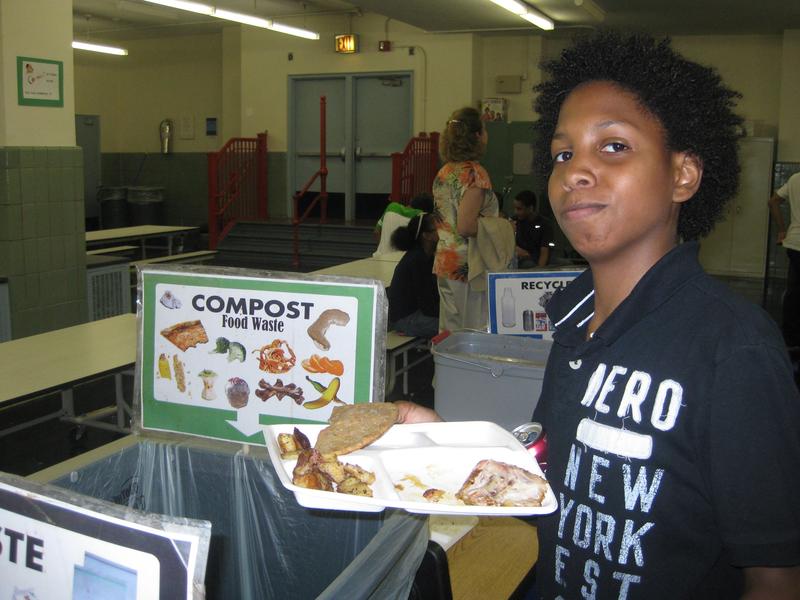
A handful of public schools have been so successful in slashing the amount of cafeteria garbage they created through composting that the program is being expanded by the Bloomberg administration.
The effort began as an upper West Side pilot program started by five mothers who wanted to reduce waste in their children's schools.
Lisa Maller was one of the five moms. She recalled that on one of the first days she was volunteering with the program at P.S. 334, she saw how quickly students were adapting to the concept of composting.
"A boy come up to me with a big bag of vegetable waste that he brought from home and he said 'Is it ok if I throw it into the composting can?' That means he went home told his parents about it and asked if he could bring his vegetable waste from home the next day,” Maller said.
The pilot schools reduced their waste from 54 garbage bags a day to 8 by separating their food waste from the cafeteria trays and other recyclables. A private waster hauler, IESI, then collected the composting food waste from the schools.
The program is slated to expand from eight schools to 20 schools in the Upper West Side this fall.
Upper West Side Councilwoman Gale Brewer said she sees a lot of programs come and go and admits she was little shocked when this one worked so well.
"Waste there is now very low and the garbage bags are minimal outside the school. It almost felt like so cutting edge—like it could turn the world around."
The Department of Sanitation says if the program continues to be successful, it will expand citywide.
Separating organic waste from others kinds of trash in the city is an ongoing major initiative.
The city said it spends $92 for every ton of waste it dumps into landfills.
Correction: An earlier version of this story said the Sanitation Dept took the composting waste away. That is incorrect. It was a private waste hauler, IESI.
